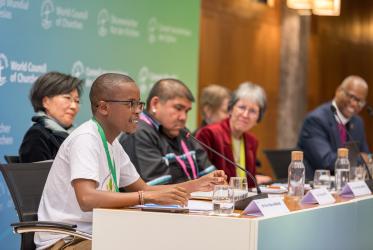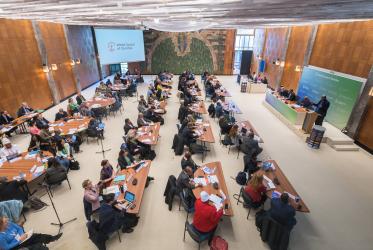Displaying 1 - 20 of 595
WCC extends prayers for lasting peace in Haiti
11 April 2024
WCC, WHO commemorate 50 years of collaboration
04 April 2024
What can churches do to prevent modern slavery?
22 February 2024










